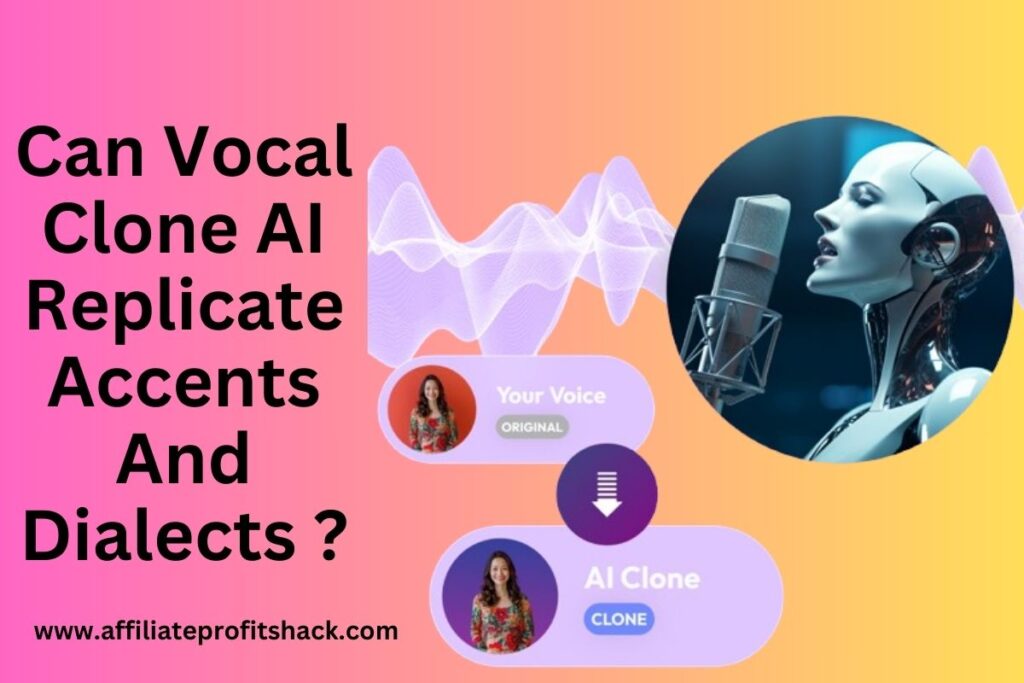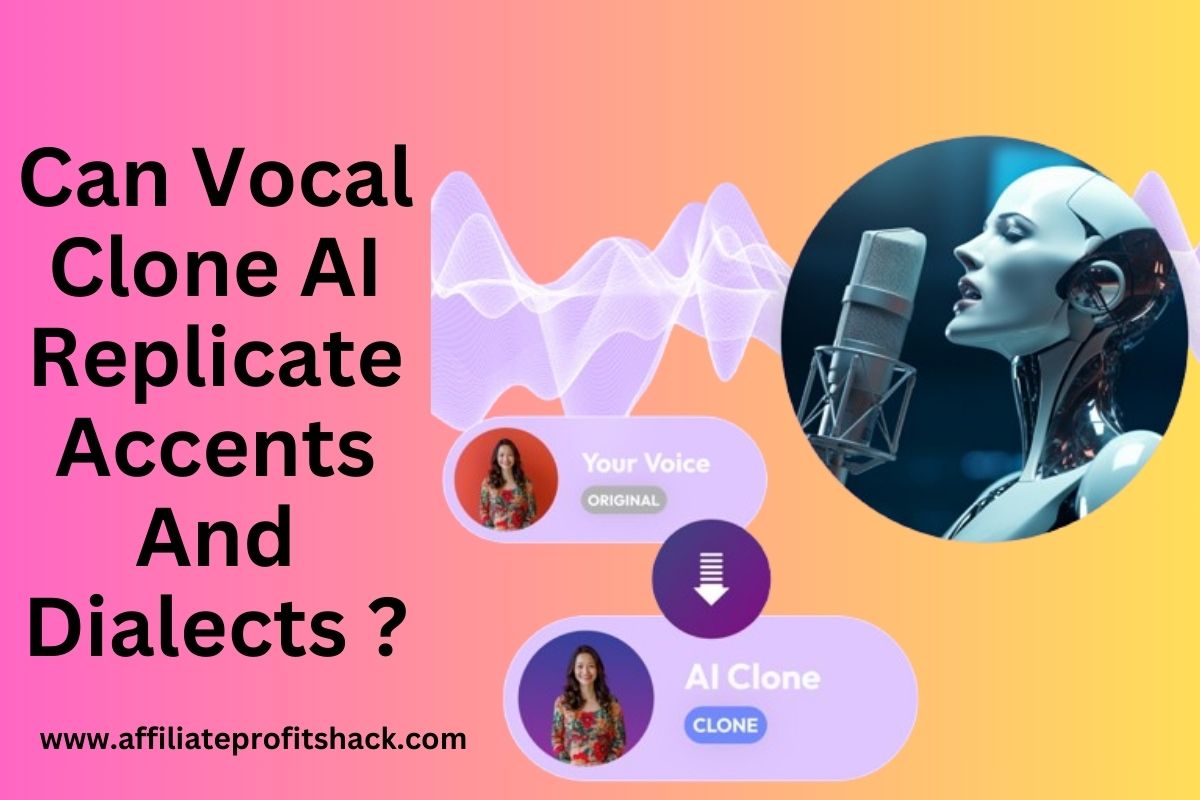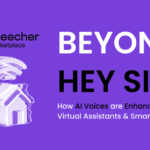Have you ever wondered what it would be like to hear your favorite celebrity or historical figure speak to you directly? Thanks to advancements in artificial intelligence, this is now a reality. Vocal clone AI, a technology that can mimic a person’s voice, is rapidly evolving and becoming increasingly sophisticated.
While vocal clone AI has been used primarily for entertainment purposes, such as creating deepfakes and voice-over work, its potential applications extend far beyond this. From language learning to customer service, this technology has the power to revolutionize how we interact with machines and each other.
My Proven Way to Make $100-$200 Per Day With 0 Investment – Watch THIS FREE Video to START >>

Understanding Vocal Clone AI: A Deep Dive
Vocal clone AI is a cutting-edge technology that can replicate a person’s voice with remarkable accuracy. Essentially, it’s like creating a digital doppelganger of your voice.
How Does It Work?
The process of creating a vocal clone involves several key steps:
- Data Collection: A large amount of audio data, such as recordings of the person’s voice, is gathered. This data should be diverse, encompassing various speaking styles, emotions, and accents.
- Feature Extraction: The AI analyzes the audio data to identify specific features that characterize the person’s voice. These features include pitch, tone, rhythm, and articulation.
- Model Training: A machine learning model is trained on the extracted features. This model learns to recognize patterns and relationships in the voice data.
- Synthesis: Once trained, the model can generate new audio samples that mimic the person’s voice. By inputting a text prompt, the AI can synthesize speech that sounds remarkably similar to the original speaker.
Applications of Vocal Clone AI
Vocal clone AI has a wide range of applications, including:
- Voice Synthesis: Creating synthetic voices for various purposes, such as text-to-speech systems, virtual assistants, and gaming characters.
- Dubbing: Replacing the original voice in films, TV shows, and other media with a different language or accent.
- Entertainment: Creating deepfakes, parodies, and other forms of entertainment content.
- Accessibility: Providing a voice for people with speech impairments or disabilities.
- Customer Service: Enhancing customer experiences by providing personalized and natural-sounding interactions.

Click The Link To Buy Vocal Clone AI
The Challenges of Accents and Dialects
Human speech is a complex phenomenon, and accents and dialects add an extra layer of intricacy. These regional variations are influenced by a multitude of factors, including geography, history, culture, and individual experiences.
Complexity of Human Speech
- Phonetic Variations: Accents and dialects often exhibit significant differences in pronunciation. This can involve variations in vowel sounds, consonant sounds, and the way words are stressed.
- Intonation: The way in which pitch rises and falls during speech can vary greatly between accents and dialects. This can affect the meaning and emotional tone of utterances.
- Rhythm: The rhythm of speech, including the speed and cadence, can also differ between accents and dialects. These variations can influence the overall flow and cadence of spoken language.
Regional Differences
Accents and dialects can vary widely across different regions, from subtle variations to distinct languages. These differences can be influenced by factors such as:
- Geography: Geographic isolation can lead to the development of unique accents and dialects. For example, island cultures often have distinctive dialects due to limited contact with other regions.
- Historical Factors: Historical events, such as migration, colonization, and war, can have a significant impact on the development of accents and dialects. For instance, the spread of the English language to different parts of the world has resulted in a wide range of English accents.
- Cultural Influences: Cultural factors, such as social status, ethnicity, and religion, can also shape accents and dialects. For example, people from different social classes may use different accents to signal their identity.
Nuances and Subtleties
Accents and dialects are more than just variations in pronunciation. They often reflect the unique cultural and historical context of a particular region. These nuances can include:
- Regional Idioms: Accents and dialects often have their own unique idioms and expressions. These can be difficult to understand for non-native speakers.
- Emotional Nuances: Accents and dialects can convey subtle emotional nuances that may be lost in translation. For example, a particular accent may be associated with warmth, friendliness, or authority.
- Cultural Identity: Accents and dialects can be a powerful symbol of cultural identity. They can help people to connect with their roots and feel a sense of belonging.
My Proven Way to Make $100-$200 Per Day With 0 Investment – Watch THIS FREE Video to START >>
The Current State of Vocal Clone AI and Accents
Vocal clone AI has made significant strides in recent years, demonstrating an impressive ability to replicate speech patterns. However, accurately capturing the nuances of accents and dialects remains a challenging task.
Advancements in Vocal Clone AI
- Improved Accuracy: Modern vocal clone AI models can produce highly realistic synthetic voices that are often indistinguishable from human voices. They can capture subtle variations in pitch, tone, and rhythm.
- Enhanced Diversity: Recent advancements have enabled vocal clone AI to generate voices in a wider range of languages and accents. This has expanded the potential applications of the technology.
- Real-time Synthesis: Some vocal clone AI systems can now synthesize speech in real-time, making them suitable for interactive applications such as virtual assistants and chatbots.
Limitations of Current Vocal Clone AI
- Nuance Capture: While vocal clone AI can replicate many aspects of human speech, it still struggles to capture the subtle nuances of accents and dialects. This is particularly challenging when dealing with regional variations that involve complex phonetic patterns and emotional expressions.
- Contextual Understanding: Current vocal clone AI models often lack a deep understanding of the context in which speech is produced. This can lead to limitations in generating natural-sounding speech in different situations.
- Ethical Concerns: The ability of vocal clone AI to create highly realistic synthetic voices raises ethical concerns, particularly regarding the potential for misuse.
Case Studies
- Success: A notable success of vocal clone AI is the creation of synthetic voices for people with speech impairments. By using a small amount of recorded speech, researchers have been able to generate highly personalized voices that can help individuals communicate more effectively.
- Failure: While vocal clone AI has achieved impressive results in some cases, it has also faced limitations. For example, attempts to create synthetic voices of famous people have often been criticized for their lack of authenticity. The challenge lies in capturing the unique characteristics that make a particular voice recognizable and memorable.
Despite its limitations, vocal clone AI continues to evolve rapidly. As the technology advances, we can expect to see even more impressive demonstrations of its capabilities, particularly in the realm of accent and dialect replication.
The Ethical Implications of Vocal Clone AI
The rapid advancement of vocal clone AI has raised significant ethical concerns. These concerns range from privacy violations to the potential for misuse in spreading misinformation and fraud.
Privacy Concerns
- Unauthorized Use of Voices: One of the primary privacy concerns associated with vocal clone AI is the unauthorized use of voices. Individuals may find their voices used without their consent, leading to a loss of privacy and potential harm to their reputation.
- Deepfakes: Deepfakes, which are manipulated media that can make it appear as if a person has said or done something they did not, pose a significant threat to privacy. Vocal clone AI can be used to create deepfakes that are virtually indistinguishable from reality.
Misinformation and Fraud
- Spreading Misinformation: Vocal clone AI can be used to spread misinformation and disinformation. By creating deepfakes of public figures or experts, malicious actors can deceive the public and undermine trust in institutions.
- Perpetrating Fraud: Vocal clone AI can also be used to perpetrate fraud. For example, scammers may use deepfakes to impersonate bank officials or customer service representatives to trick people into revealing sensitive information.
Intellectual Property Rights
- Voice Ownership: The ownership of a person’s voice is a complex legal issue. While individuals generally have a right to control the use of their voice, the boundaries of this right are not always clear.
- Commercial Use: The use of voices and accents in commercial applications raises questions about intellectual property rights. For example, if a company uses a celebrity’s voice without their permission, it could be considered a violation of their rights.
The ethical implications of vocal clone AI are significant and require careful consideration. As the technology continues to evolve, it is essential to develop appropriate safeguards to protect individuals’ privacy and prevent the misuse of this powerful tool.
The Future of Vocal Clone AI and Accents
As vocal clone AI continues to evolve, ongoing research is focused on improving its ability to replicate accents and dialects with even greater accuracy.
Research and Development
- Enhanced Data Sets: Researchers are working to create larger and more diverse data sets to train vocal clone AI models. These data sets will include a wider range of accents, dialects, and speaking styles.
- Improved Neural Networks: Advances in neural network architectures are enabling vocal clone AI models to learn more complex patterns and relationships in speech data. This will lead to more accurate and natural-sounding synthetic voices.
- Integration with Natural Language Processing: Researchers are exploring the integration of vocal clone AI with natural language processing (NLP) techniques. This will allow the AI to better understand the context of speech and generate more appropriate and nuanced responses.
Potential Breakthroughs
- Understanding and Generating Nuanced Speech: Future advancements in vocal clone AI may enable the technology to understand and generate speech that is even more nuanced and expressive. This could include capturing subtle emotional variations, regional accents, and cultural nuances.
- Real-time Adaptation: Vocal clone AI systems may become capable of adapting to different speaking styles and accents in real-time. This would make them more versatile and useful in a variety of applications.
Ethical Guidelines
As vocal clone AI becomes more powerful, it is essential to establish ethical guidelines and regulations to govern its use. These guidelines should address issues such as:
- Privacy Protection: Ensuring that individuals’ voices are used ethically and responsibly.
- Misinformation Prevention: Preventing the use of vocal clone AI to spread misinformation and disinformation.
- Intellectual Property Rights: Protecting the rights of individuals and organizations to their voices and accents.
- Transparency: Requiring transparency in the use of vocal clone AI to prevent deception and manipulation.
By developing and implementing ethical guidelines, we can ensure that vocal clone AI is used for beneficial purposes and that its potential risks are minimized.
My Proven Way to Make $100-$200 Per Day With 0 Investment – Watch THIS FREE Video to START >>
Conclusion
In conclusion, vocal clone AI has made significant strides in recent years, demonstrating an impressive ability to replicate speech patterns. However, accurately capturing the nuances of accents and dialects remains a challenging task. While the technology has the potential to revolutionize communication and entertainment, it is essential to address the ethical concerns associated with its use.
As vocal clone AI continues to evolve, it is crucial to develop appropriate safeguards to protect individuals’ privacy, prevent the misuse of this technology, and ensure that it is used for beneficial purposes. By striking a balance between innovation and ethical responsibility, we can harness the power of vocal clone AI for the betterment of society.









